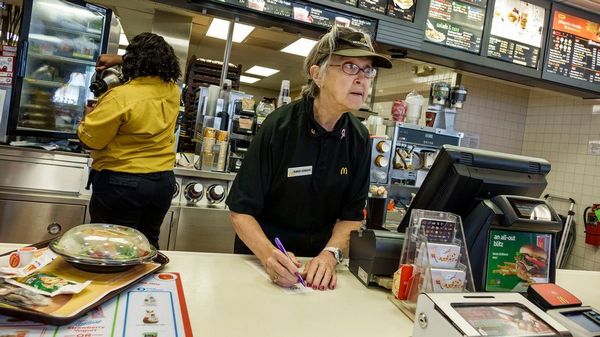Material World – Too old to work, too young to die
We are all getting older and we will be older for longer. People living longer sounds good. But not for capitalism.

Improvements in healthcare have brought extended longevity and longer lifespans mean there are more older people. The population aged 65 and older is growing faster than all other age groups, especially as the global birth and fertility rates have been dropping. Over the past 50 years, the median age of the world’s population has increased by 10 years, ie, from 20 years in 1970 to 30 years in 2020. Many countries have attained median ages well above 35 years, such as France at 41 years, South Korea at 43 years, Italy at 46 years and Japan at 48 years. The median ages of the world’s populations are expected to continue to rise, reaching 40 years by 2070. In 1970 China’s population had a median age of 18 years, ie, half of their population were children. By 2070 the median age of China’s population is projected to triple to 55 with the proportion of children declining to 12. By 2070 the world’s average life expectancy at age 65 will be 21 more years with many developed countries having life expectancies at age 65 of 25 years or more, ie, people surviving on average to age 90. There is less need for paediatricians and gynaecologists and much more requirement for specialists in geriatrics and care-working. There are not enough nursing home beds to cater for elderly people who need long-stay residential care.
Governments have concerns about the prospect of their populations possessing more grandparents than grandchildren and the burden on pension and healthcare budgets of their ageing populations. An ageing society is viewed as damaging to a state’s economy since it decreases the workforce numbers and increases the costs on social services and health. The need for pensions arises from the fact that as workers get older, they become surplus to requirements for the capitalists. State pensions take up a vast proportion of public spending. The capitalist class has to pay to keep workers alive upon retirement and it is one of the non-productive activities that the State has to undertake.
Within the next few decades, working-age adults will need to support a higher number of elderly people than they do now, putting pressure on welfare systems and taking up much of the future economic growth and output unless offset by increased technology delivering gains in productivity. There is also a need for greater immigration to boost the labour supply to alleviate the adverse effects of an ageing population as new migrants lower the average age of the host nation’s population. The changes in the demographic structure of various societies and the need to replenish the workforce will not be addressed by more older workers (as the evidence is that chronic ill-health is higher with advancing years) and will require a rethink on immigration policies encouraging newcomers from other regions of the world such as Africa.
Government options are to reduce benefits, increase tax revenue or raise the retirement age. Pensions are essentially a tax on the profits of the capitalists, even if ultimately these profits come from what workers produce, and increasing taxes will not be welcomed by businesses. Meanwhile cutting state benefits would only worsen the already existing poverty of old age. So the preferred choice is to make people work for longer by postponing the official retirement age and the payment of state pensions. Similarly, due to mounting costs, employers are currently scaling back their own occupational pension schemes. Pensions and the retirement age are under assault. It has happened in the UK and is taking place nearly everywhere else, despite widespread opposition from working people
Under capitalism the elderly and frail are seen as superfluous, and of little use to employers. Possessing money as consumers in our capitalist society is the only way to maintain any status in one’s old age because money has power no matter what age you are. We are seeing an increasingly unequal society with the elderly among those bearing the brunt. Capitalism leaves its senior citizens unwanted, isolated and invisible.
Growing old is inevitable but the way we get old is not. Although we are living far longer, a significant and increasing proportion of people are managing multiple health conditions and mobility problems from mid-life onwards. Current rates of chronic illness, mental health conditions, disability and frailty could be greatly reduced. The extra golden years of longer life are a gift to enjoy. Socialism will bring forth more social and community networks to build creative relationships, enhancing the quality of life for everyone, both young and old. The contributions of older persons to society are invaluable and cannot be measured in mere material terms. They offer care-sharing and the passing on of knowledge to new generations. The progress of civilisation from our increased lifespan is being squandered by capitalism.
Gulliver’s Travels features the Struldbruggs, a people who appear normal in all respects except one – they don’t die. But their immortality, instead of being a blessing, is a curse because they continue to age:
‘At 90, they lose their teeth and hair; they have at that age no distinction of taste, but eat and drink whatever they can get, without relish or appetite. The diseases they were subject to still continue…’
Socialism will not bestow immortality nor eternal youth but it will permit us all to age with dignity.
ALJO
